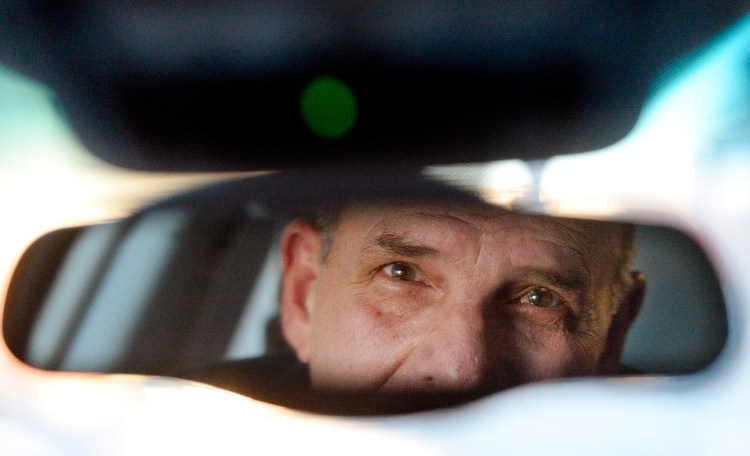A white taxicab driver has filed a lawsuit accusing the city of Portland of racial discrimination for denying him one of 45 permits to work as part of the Portland International Jetport’s taxi pool.
The driver, Paul McDonough of South Portland, said in the lawsuit filed Tuesday in Cumberland County Superior Court in Portland that the city’s current jetport taxicab permit system is “blatantly discriminatory” because it has issued permits only to people of Somali or Iranian descent or nationality.
“How does it happen that 45 licenses all go to one racial group who just arrived in this country?” McDonough’s attorney, David Turesky, said in an interview after filing the lawsuit.
Turesky said that in 2008, the city granted all of its then 50 jetport licenses to Somali or Iranian immigrants without opening bidding to the general public. The city reduced the number of available jetport licenses in July 2013 to 45, “grandfathering” in those license holders, again without opening the bidding process to the public.
“It was done in a way that was never publicized,” Turesky said. “Our supposition is something was done to benefit these gentlemen or this particular group. But we don’t know how. We don’t know precisely what the motive was. We don’t know who paid for the licenses.”
The city’s attorney, Corporation Counsel Danielle West-Chuhta, did not respond to a phone message seeking comment on the lawsuit.
The lawsuit originated from a complaint that McDonough and another white male taxicab driver filed in June 2013 and brought before the Maine Human Rights Commission. State investigators found that the complaint by McDonough and Raymond Chasse of Scarborough has “no reasonable grounds.” Chasse has since died.
Turesky said the Maine Human Rights Commission did not investigate the background of how the city’s permitting practices began. He expects that those details will be ordered to be disclosed through the court process.
Turesky expects that even if the court finds that the city did not intentionally commit racial discrimination, it did discriminate.
“I think the city would have to concede that the effect has been discriminatory,” he said.
McDonough, 70, is the owner of Timely Taxi and has what is classified by the city as a reserve taxi license, meaning he can serve the general city but cannot idle outside the airport arrivals terminal. He is allowed to take an airport fare only if he is called there by appointment.
The city’s 45 jetport permits are classified as non-reserve, a costlier and more coveted license that allows the licensee to wait at the terminal for air passengers who arrive on a regular timetable. Those licenses expire in 2018, Turesky said.
McDonough’s lawsuit is seeking to have the city bidding process reopened to everyone and to be compensated for the extra money he could have made with a non-reserve license.
Turesky said taxi drivers in the airport pool often get more lucrative fares, taking air travelers long distances and on a predictable schedule.
McDonough often makes his money driving city residents who don’t have their own cars short distances, such as to the grocery store or for a medical appointment, Turesky said.
Copy the Story LinkSend questions/comments to the editors.



Success. Please wait for the page to reload. If the page does not reload within 5 seconds, please refresh the page.
Enter your email and password to access comments.
Hi, to comment on stories you must . This profile is in addition to your subscription and website login.
Already have a commenting profile? .
Invalid username/password.
Please check your email to confirm and complete your registration.
Only subscribers are eligible to post comments. Please subscribe or login first for digital access. Here’s why.
Use the form below to reset your password. When you've submitted your account email, we will send an email with a reset code.